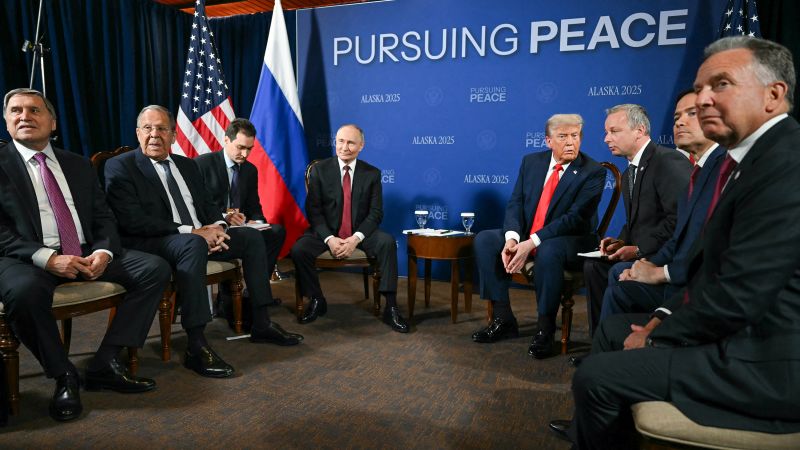In a recent summit held in Alaska, significant discussions took place regarding a potential peace agreement concerning Ukraine. President Donald Trump’s foreign envoy, Steve Witkoff, who was one of three American representatives at the meeting with Russian President Vladimir Putin, reported that noteworthy agreements were reached that could push the negotiations towards a resolution. The conversations lasted nearly three hours, and Witkoff described the outcomes as potentially transformative in the context of international relations and security frameworks.
Witkoff elaborated on the summit during an interview on CNN’s “State of the Union,” indicating that Putin had approved provisions for “robust” security guarantees within the future peace agreement. These guarantees reportedly include a collective defense commitment from both the United States and European nations to protect Ukraine should any further Russian aggression occur. This notion marks a possible shift in the geopolitical landscape, with implications for NATO’s defense strategy concerning Eastern Europe.
Additionally, Witkoff claimed that there was an agreement on the “legislative enshrinement” of a promise by Russia not to invade Ukraine or any other European country. Curiously, these details have not been reflected in Russian public statements regarding the summit, raising questions about the integrity of the dialogue and the sincerity of the commitments made by the Russian side.
The descriptions provided by Witkoff represented the clearest picture of the negotiations, highlighting breakthroughs that he believed would change the dynamics of international negotiations regarding Ukraine’s sovereignty. In upcoming discussions, Trump is expected to meet with Ukrainian President Volodymyr Zelensky along with several European leaders to dialogue further about the situation.
However, challenges to progress remain, as the United States continues to evaluate Putin’s credibility concerning these promises. There is skepticism regarding whether Russia can be trusted, given its history of disregarding previous agreements. The delicate balance of power and the commitment from the U.S. to ensure Ukraine’s safety raises intricate questions about what concessions Trump might need to make to averting a future invasion.
Prior to the Alaska summit, Trump expressed a desire for an immediate ceasefire, threatening serious repercussions for Russia should the hostilities continue. But post-summit comments suggested a pivot in his approach; he indicated that an immediate ceasefire was no longer the primary objective and retreated from the notion of immediate sanctions on Russia. This strategic recalibration came as a result of the perceived productive route towards a more comprehensive peace agreement.
Nevertheless, Witkoff acknowledged that considerable work lies ahead. He emphasized that fundamental disagreements still exist, as stated by Secretary of State Marco Rubio, who participated in the talks. Rubio portrayed a more cautious view, highlighting that while potential areas for agreement were identified, substantial gaps remained that could delay any peace settlement.
The anticipated meetings at the White House are critical for advancing this dialogue. Trump and Zelensky will discuss the agreements proposed by Witkoff and how to solidify these into actionable policies. Moreover, the involvement of European leaders is crucial, as they have been outspoken about imposing tough sanctions on Russia. However, there is concern on the American front regarding how punitive actions could disrupt ongoing negotiations.
A session during these talks is expected to focus on establishing strong security guarantees for Ukraine to proactively prevent any future invasions by Russia. Witkoff suggested that these arrangements align closely with NATO’s defensive postures, portraying a potential compromise to Ukraine’s NATO aspirations. Crucially, he noted that this would mark the first occasion where Russia openly agreed to such provisions in any peace negotiation context.
On the matter of territorial concessions, while Russia has maintained maximalist demands, Witkoff indicated some flexible stances were observed in discussions regarding land swaps. Nonetheless, it is evident that much remains to be resolved, and the true test of progress will unfold in the ongoing discussions between Trump, Zelensky, and other involved parties. The outcome of these negotiations could not only affect Ukraine but also reshape broader geopolitical dynamics in Europe and beyond.











